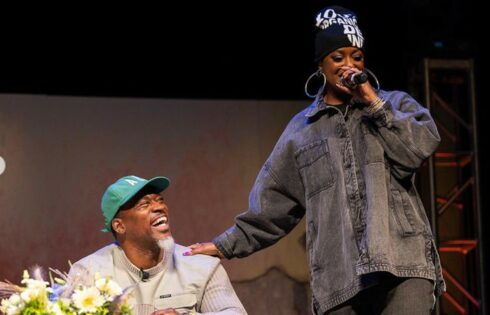
The question is not whether female partner made a ‘smart decision’
A month after a federal judge allowed a Title IX lawsuit to continue against Arizona State University, a state court went even further, ordering the public university to reinstate the accused student who filed both suits.
A three-judge panel on the Arizona Court of Appeals disagreed with the trial court. It concluded that substantial evidence did not support ASU’s finding that “John Doe” engaged in sexual misconduct against “Jane Roe” during a threesome with another male student.
The late December opinion, written by Judge Diane Johnsen and joined by Judges Kenton Jones and James Morse Jr., unanimously overturned John’s expulsion.
One issue under consideration: the finding by James Rund, ASU senior vice president for educational outreach and student services, that a rational woman would not consent to a threesome, making Jane incapacitated. (Rund did not say the same about a rational man.)
MORE: Judge approves Title IX suit against ASU for threesome expulsion
ASU’s own “chief witness” on the investigation, Kendra Hunter, admitted that “the issue of incapacitation is not whether, in hindsight, the person made a smart decision,” Judge Johnsen wrote. “Instead, it is whether the person had the cognitive ability at the time to make the decision for herself or himself.”
The panel drew a distinction between being under the influence of alcohol and being incapacitated.
“A careful review of the record shows that ASU failed to prove [Jane] lacked the capacity to make an informed choice to engage in sex with [John] on the night in question,” according to the opinion. “Rund’s findings to the contrary are simply unsupported by substantial evidence.”
Three days after the state appeals court’s ruling, U.S. District Judge Dominic Lanza finalized his “tentative” November ruling in favor of John’s federal lawsuit continuing on Title IX and “grossly negligent” claims.
Though oral argument on Dec. 18 did not substantially affect Lanza’s finalized ruling (below), the judge noted a new argument by ASU: that Rund “had no reason to opine” on whether it’s rational for men to engage in a threesome. Therefore, Lanza wrote, the university official’s comment about the rationality of Jane’s behavior only provides “modest support” for John’s gender bias claim.
Federal judge lets male student’s gender bias lawsuit proceed against Arizona State by The College Fix on Scribd
Sex crimes prosecutor contradicted university’s claims
The state appeals court said Rund relied on Jane’s statements “at face value”: that she was unaware of what occurred in the bedroom, and too intoxicated to stop or even tell John and the other male to stop the sexual activity.
Yet Jane’s “own accounts of what went on in the bedroom disprove her after-the-fact characterizations of her mental and physical state at the time,” according to the opinion.
Jane recounted vivid and distinct details of the sexual encounter – including the position of each participant and that “neither [male] ejaculated” – that an incapacitated person would not have been able to recall, Judge Johnsen wrote:
At the hearing, [Jane] testified she was not able to say the words, “I don’t want to have sex.” To the contrary, the evidence is undisputed that at some point during the sexual encounter, she did tell [John] and [the other male] to stop – and they did.
Rund also failed to rebut testimony from John’s expert witness, a veteran sex crimes prosecutor, that Jane could not have held herself in position for 20 minutes if she were incapacitated, according to the opinion. Jane herself said the sexual encounter lasted that long.
Hunter, the university’s chief witness on the investigation, testified that someone reasonable exercising their free will could decide to participate in a threesome, the opinion notes. That contradicts Rund’s finding that Jane’s “outrageous behavior” must be due to incapacitation.
MORE: ASU expelled student athlete for ‘sexual violence’ without charging him
“Based solely on undisputed accounts of the events that night” and Jane’s own statements that contradict Rund’s theory of incapacitation, Johnsen wrote, a “reasonable” person could not conclude that the university proved Jane was incapable of making “informed, rational judgments” that night.
Likewise, the appeals court found “no evidence” that Jane “ever asserted” that the two males “used violence, threats, intimidation or weapons to compel her to have sex with them.” Thus, Rund abused his discretion by by finding that John employed force during sex with Jane.
Johnsen wrote (below) that the University Hearing Board, which made recommendations to Rund, omitted a key part of Jane’s testimony about why she wanted to throw up. It made her quote misleading, suggesting that Jane was physically forced into oral sex rather than that she was drunk when it happened. Rund also interpreted “uncomfortable” sex – Jane’s actual allegation – as forced sex.
The appeals court did agree, however, that “[s]ubstantial evidence” backs ASU’s finding that John gave alcohol to the underage Jane, violating the Student Code of Conduct. He had admitted to pouring Jane “a shot” during a drinking game, and she testified that she was 19 at the time.
Therefore, ASU must newly consider what “appropriate sanction” to give John for serving alcohol to a minor, without regard to its discredited findings about incapacitation and use of force, the opinion said.
Arizona State expelled student for nonconsensual threesome without evidence to back it up by The College Fix on Scribd
MORE: University educates students on ‘negotiating successful threesomes’
IMAGE: Happy Stock Photo / Shutterstock.com
Like The College Fix on Facebook / Follow us on Twitter






Please join the conversation about our stories on Facebook, Twitter, Instagram, Reddit, MeWe, Rumble, Gab, Minds and Gettr.